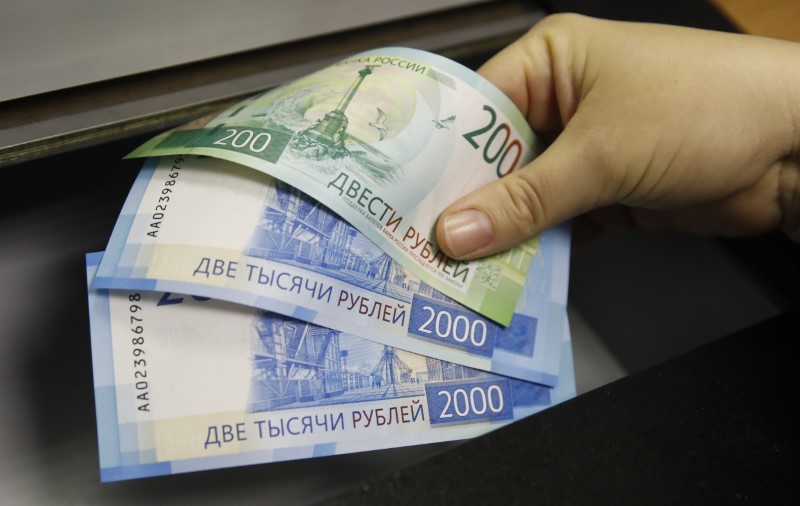By Tatiana Voronova
MOSCOW (Reuters) - Russia's central bank may need to provide another 100 billion roubles ($1.6 billion) for a planned "bad bank", adding to the more than $40 billion already spent on three banking bailouts, two sources familiar with discussions said.
Russia had to rescue three of the country's biggest private banks in the second half of 2017, including Otkritie, once the country's largest private lender, as well as B&N and Promsvyasbank. It has also shut hundreds of smaller banks as part of a wider clean-up of the finance sector over the past few years.
The banking sector's troubles have been blamed partly on excessive M&A activity by the banks and their former owners.
The central bank has decided to split the three banks' assets into "good" and "bad" and shift their non-performing assets to the planned "bad bank", which would have assets of 2.1 trillion roubles.
The plan is for the bad bank to sell off those assets within three to five years.
A source close to the central bank said that Trust Bank, part of the Otkritie banking group, which will be used to establish the bad bank, will need more than 100 billion roubles in extra funds.
Rost, part of B&N banking group, will be merged with Trust as part of the creation of the bad bank.
The second source, close to Otkritie, said that the final amount of the additional funds is yet to be decided, but confirmed it would exceed 100 billion roubles. Most of this will be used to prop up Trust's liquidity and partly - to boost its capital, the second source said.
"Almost a year has passed (since the central bank started big bailouts), the quality of the assets has worsened, value of the some has fallen as new problems have emerged," the source close to Otkritie said, explaining the need for the fresh funds.
Central Bank governor Elvira Nabiullina told Reuters this month the bank had injected 758.3 billion roubles to boost the capital of Otkritie, B&N and Promsvyazbank, while another 1.86 trillion roubles were provided for deposits.
The sources did not say how support would be split between the Trust's liquidity and capital. The source close to Otkritie said that the funds to support the capital could be partly taken from the cash provided by the central bank to Otkritie, a process which began last year.
Otkritie declined to comment. The central bank did not respond to a Reuters request to comment.
The Russian central bank has said that the bailout process, which requires printing fresh cash, will not affect its monetary policy as the funds are distributed via a specially established Fund for Consolidation of Banking Sector.
